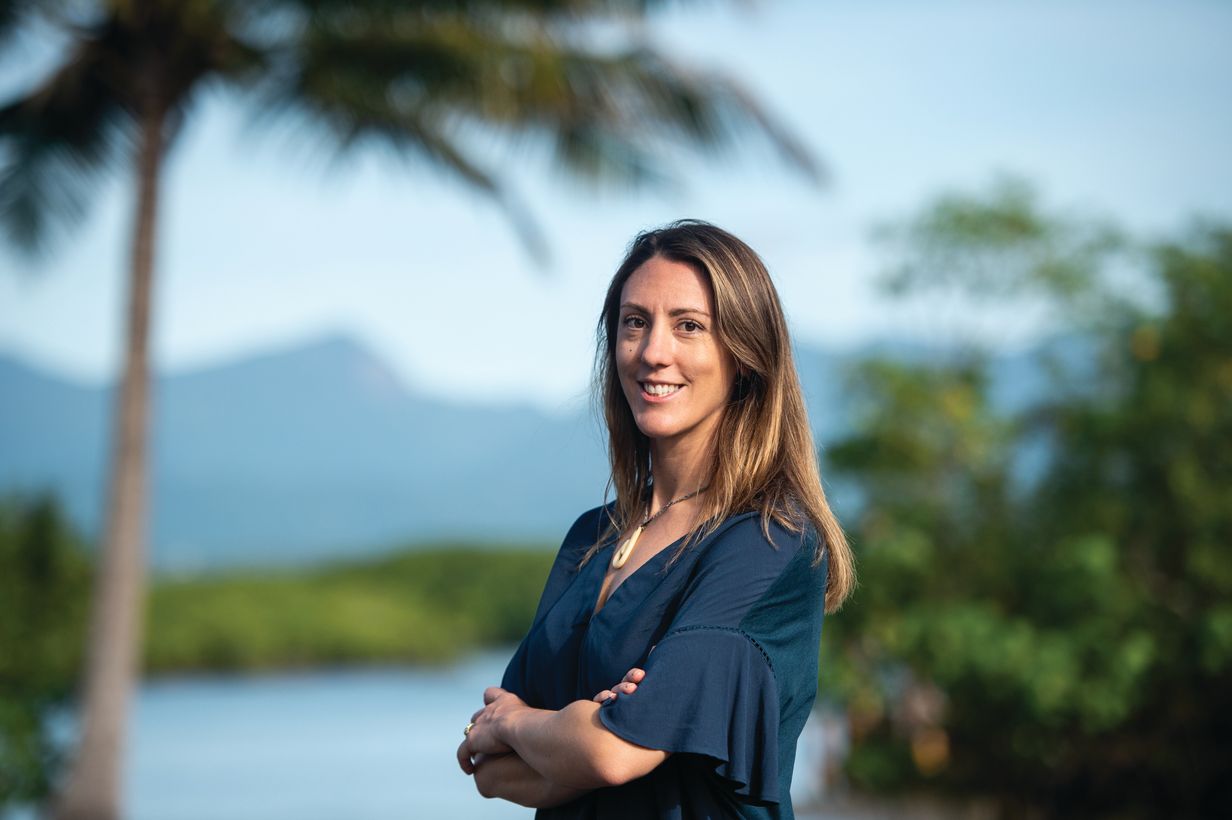Marine biologist and 2019 Rolex Awards Laureate Emma Camp is helping coral reefs survive the rapid environmental damage that they are experiencing due to climate change. She is locating and studying the world’s most tolerant corals to understand how some of them survive extremely harsh environmental conditions that typically kill others. Through her work, Emma is unlocking new understanding on the mechanisms that support coral resilience and is now using this knowledge to see how it can be applied to repopulate coral reefs that have been impacted by bleaching and other forms of coral death.
“My mission is to help conserve coral reefs, but also to inspire people to engage with nature and preserve the world’s valuable ecosystems by addressing climate change,” Camp tells Portfolio. “My work is funded through a variety of sources that include government, my university, philanthropic groups, and awards such as the Rolex Awards for Enterprise.”
It’s not very easy for everyone to grasp the benefits that can be derived from healthy, thriving coral reefs. How do you explain to laymen why protecting and reviving coral reefs is important?
A healthy coral reef provides many important ecosystem services. They can be considered the rainforest of the sea, although covering less than 1 per cent of the ocean floor, they house over 25 per cent of marine life. Coral reefs also provide essential coastal protection from storms and support fish stocks. Many of our medicine also contain compounds originating from organisms found in coral reefs. They also have a significant cultural value for many communities around the world and bring in revenues through tourism activities.
How has being chosen as a Rolex Awards Laureate helped your work?
The funding I received from Rolex has helped organize an expedition to look for more resilient corals, which allowed me to advance my research efforts. It has also elevated my profile and created new opportunities for me to communicate my work.
Rolex is well known for recognizing global initiatives that push boundaries. What part of your research, do you think, aligns with that fundamental belief?
I’ve explored overlooked, harsh environments to locate resilient corals, and pioneered the observation that mangrove lagoons can house corals, despite being warm, acidic, and having low oxygen seawater conditions—three stressors occurring under climate change that reefs have to contend with. My discovery of these extreme corals is transforming our understanding of the conditions some corals can survive in; they provide a natural laboratory for us to consider the impacts of climate change on coral reefs.
You are currently studying the two new hot-spots of resilience on the northern Great Barrier Reef – the Low Isles and Howick Island. Do you see any similarities between your efforts and Sylvia Earle’s Mission Blue?
Yes, there are definite synergies between Sylvia’s work to identify the world’s ocean hope spots, and my work to identify coral hot-spots of resilient coral; namely, both activities look to preserve unusual species or ecosystems, particularly if they have the capacity to help reverse negative impacts humans have had on an environment.
The Earth is beset with other pressing environmental problems. Why are you focusing on saving the coral reefs?
I fell in love with coral reefs when I was around eight years old. Their intricate beauty drew me in, and I was fascinated by the life they supported. As I got older, I learned how they have been negatively impacted by humans, and that many of the essential services they provide could be lost.
This would impact many of the world’s poorest communities. The thought that we could possibly lose reefs in our lifetime was not something I wanted to see happen, and trying to help reefs has therefore become my lifelong work.
There are many approaches to caring for the environment, including coral reefs. Which one do you subscribe to and why?
I believe every individual can make a difference to help preserve coral reefs. Our actions are connected to nature. If we can each make changes to our lives, even small changes, to reduce our carbon footprint, we will ultimately be helping nature and coral reefs.
How are you putting your discovery—that some corals can thrive in extreme conditions—to good use? Are you optimistic that with concerted efforts we can undo the damages that have been done to the coral reefs?
The discovery is used in several ways. Firstly, we use the extreme coral sites as a natural laboratory to better understand the impact climate change can have on reefs, which coral species could potentially survive, and what the cost of that survival would be (e.g., slower growth rates).
Next, we study the corals to try and understand how their genetics and physiology support their survival in these hostile environments. From here, we see if that can be used in novel active management activities, such as transplanting them to degraded reef sites. While these local activities may buy time for some reefs, we ultimately must address climate change to ensure the long-term future of coral reefs.
Is there adequate regulation, on a global scale, to protect the coral reefs? Which regulatory bodies are involved in the undertaking?
Coral reefs have varying levels of environmental protection depending on where they are located. It is down to the country whose waters they are located in to denote appropriate protection. There are global organizations that provide guidance, such as the United Nations and the International Union for the Conservation of Nature (IUCN).
What does your work mean to you personally? What is your ultimate goal?
My ultimate goal is to ensure that future generations can experience diverse, healthy functioning coral reefs as we have now.
More broadly, I also hope to inspire others to care for coral reefs, and to take action to address climate change. My work is my passion, and I am determined to continue to give it my all to ensure I have done everything I can to achieve this goal.







.jpeg)




 Back
Back